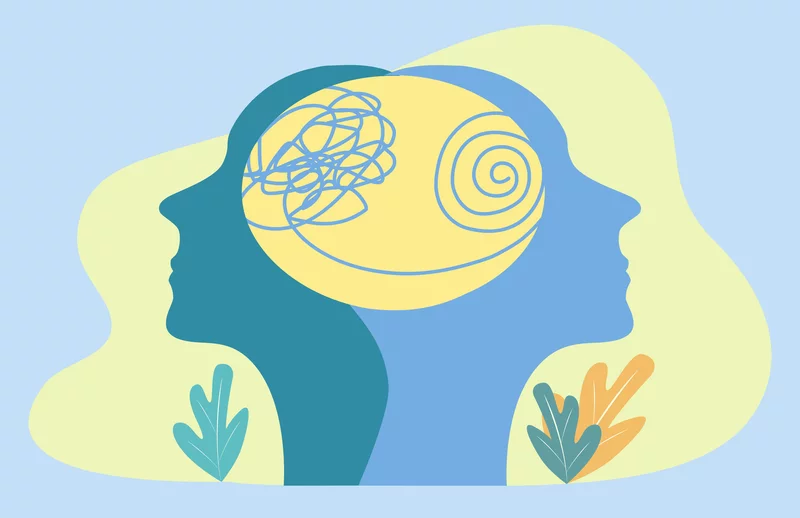Ever wondered what makes you tick, what sends your stress levels through the roof, or what really lights up your day? This practice is like having a personal emotional compass. It’s all about digging deep, uncovering those hidden stressors, those sneaky emotional triggers, and those neglected areas of your life craving some TLC.
But it’s not just about finding what’s off-kilter. These regular check-ins are your pathway to a richer, more colorful understanding of your unique mental landscape. Imagine gaining superpowers in self-awareness, where you’re not just reacting to life’s ups and downs, but actually dancing in rhythm with them.
“How Am I Feeling Today?”

This question allows you to tune into your current emotional state. Are you feeling happy, sad, anxious, or neutral? Acknowledging your feelings without judgment is the first step in understanding your mental state. This question also encourages you to recognize and validate your emotions, which is essential for emotional well-being.
“What’s Occupying My Thoughts?”
Our thoughts have a significant impact on our mental health. This question helps you identify what’s on your mind, be it work, personal issues, or future anxieties. By pinpointing your thoughts, you can address overwhelming or negative thought patterns and work towards more positive and constructive thinking.
Reflecting on Stress and Anxiety

Stress and anxiety are common aspects of life, but they can become overwhelming if not managed properly. Asking yourself about your stress levels and the sources of your anxiety can help in finding effective ways to manage them. This reflection can lead to identifying stress-relief activities or the need for professional help.
Assessing Physical Well-being
Physical and mental health are deeply interconnected. Inquiring about your physical well-being, such as sleep quality, appetite, and energy levels, can offer insights into your mental state. Poor physical health can often be a sign of mental distress and vice versa.
Evaluating Personal Relationships
Personal relationships can greatly influence mental health. Reflecting on your interactions with family, friends, and colleagues can help you identify if these relationships are sources of support or stress. Healthy relationships contribute to mental well-being, while toxic relationships can have the opposite effect.
Recognizing Achievements and Gratitude
Focusing on your achievements, no matter how small, and practicing gratitude can have a positive impact on your mental health. This question encourages a shift in focus from what’s lacking or problematic to what’s going well in your life, fostering a sense of accomplishment and contentment.
Contemplating Professional Fulfillment
Your job or career can significantly affect your mental health. Reflecting on your feelings about work, including satisfaction, challenges, and aspirations, can help you understand if your professional life is contributing to your mental well-being or detracting from it.
Planning for Self-Care

Self-care is essential for good mental health. Asking yourself about your self-care practices, such as hobbies, relaxation techniques, or physical activities, can encourage you to take time for yourself. Consistent self-care is vital for replenishing your mental and emotional energy.
Setting Intentions for Tomorrow
Ending your mental health check-in with a look towards the future can be empowering. Setting intentions for the next day, whether they are goals, attitudes, or actions, can help you approach the future with positivity and purpose. This proactive stance can enhance your sense of control and optimism.
Here our favorite question suggestions:
- How do I feel right now in three words?
- What’s taking up most of my headspace today?
- Am I holding onto something I need to let go of?
- What am I grateful for today?
- How have I cared for my body today?
- What emotions am I experiencing right now?
- How is my energy level compared to yesterday?
- What’s one thing I can do today for my mental well-being?
- Have I set realistic and achievable goals for the day?
- What’s one positive thing I experienced today?
- How well did I sleep last night?
- Am I putting pressure on myself about something?
- Is there someone who uplifted me today, and how can I thank them?
- What’s a recent situation that made me happy/sad/angry, and why?
- Am I avoiding a task or conversation, and why?
- What’s a small step I can take to improve my mood?
- How did I deal with a challenge today?
- What can I do to better support myself tomorrow?
- Am I feeling more introverted or extroverted today?
- Is there a boundary I need to set or respect?
- What’s one self-care activity I can commit to this week?
- Have I been comparing myself to others, and how does that make me feel?
- What are three things I did well today?
- How am I feeling about my upcoming plans and commitments?
- What’s something new I learned about myself or others today?
- Am I harboring any unresolved feelings that need addressing?
- Is there a part of my day that I’m particularly looking forward to or dreading?
- What’s one way I can stretch my comfort zone tomorrow?
- How can I make space for more joy in my life?
- What am I most proud of myself for today?
FAQs
How long should I spend on my daily mental health check-in?
The time spent on a daily mental health check-in can vary based on individual needs and schedules. Generally, a check-in can take anywhere from 5 to 15 minutes. It’s more about the quality of reflection rather than the quantity of time. Consistency is key, so find a duration that you can comfortably incorporate into your daily routine.
Can I do mental health check-ins at any time of the day?
Yes, you can perform mental health check-ins at any time that suits you. Some people prefer doing it in the morning to set a positive tone for the day, while others find it more beneficial in the evening as a way to unwind and reflect on the day. The important thing is to choose a time when you can be calm and undistracted.
Should I write down my responses to these check-in questions?
Writing down your responses can be very beneficial. It allows you to track your mental health over time and notice patterns or changes. Journaling your thoughts and feelings in response to these questions can also provide a therapeutic outlet for expression.
What if I find it difficult to answer these questions?
It’s normal to find it challenging to answer these questions, especially when you’re just starting out. Begin by answering them as honestly as you can, even if the answer is “I don’t know.” Over time, as you become more accustomed to self-reflection, you may find it easier to articulate your thoughts and feelings.
Are these check-in questions a substitute for professional mental health care?
No, these questions are not a substitute for professional mental health care. They are tools for self-reflection and self-awareness. If you’re experiencing significant mental health challenges, it’s important to seek help from a qualified mental health professional.
Can I customize these mental health check-in questions?
Absolutely! Feel free to modify or add questions that resonate more with your personal experiences and mental health journey. The goal is to create a check-in process that feels meaningful and helpful to you. Tailoring the questions to fit your specific needs can make the practice more effective and engaging.
Final Words
Daily mental health check-ins through these questions can be a powerful tool for maintaining and improving your mental well-being. They encourage introspection, self-awareness, and proactive management of your mental health. By incorporating these check-ins into your daily routine, you can take an important step towards a healthier, more balanced life. Remember, if you find yourself struggling with your mental health, seeking professional help is a sign of strength and an important step in your journey towards well-being.

